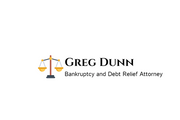Understanding the Different Types of Debt

Debt comes in various forms, including credit cards, mortgages, and auto loans. While there are important distinctions between these debts, they can all be divided into two basic categories: secured and unsecured. If you’re having trouble keeping up with your obligations, understanding the differences between various liabilities can help you choose the best debt relief strategy for your situation.
Secured
What Is Secured Debt?
Some debts, like auto loans and mortgages, are secured by a particular piece of property. If the borrower defaults on their obligation, the lender has the right to repossess or foreclose on the asset. For instance, your vehicle can get seized if you fall behind on an auto loan.

Credit cards are also secured by a deposit made into a special bank account. If you fail to pay the bill, the lender will apply the security deposit to the balance.
How Do You Deal With It?
Borrowers who have fallen behind on mortgage or auto loan payments can benefit from filing for Chapter 13 bankruptcy.
This debt relief program allows you to make up arrears through a court-managed payment plan. As long as you keep making the payments on time, the lender can’t seize the property securing the loan.
Unsecured
What Is Unsecured Debt?
Most consumer debts aren’t tied to a specific piece of property. They are typically made based on the borrower’s promise to repay. Unsecured debts include most credit cards, personal loans, store charge accounts, medical debt, and student loans. If the borrower fails to repay, the lender will typically either write off the debt or file a lawsuit.
How Can You Handle Excessive Unsecured Debt?
Chapter 7 bankruptcy is a debt relief option designed for borrowers struggling with excessive unsecured debt. This program eliminates most liabilities, including credit cards, personal loans, medical debt, and some back taxes.
In exchange, the court’s trustee gains the right to seize some of your property to pay back creditors. Fortunately, the bankruptcy code exempts a wide range of assets, so many borrowers can get the debt relief they need without losing anything.
If you’re struggling with debts you can’t repay, Greg Dunn, Bankruptcy and Debt Relief Attorney in Honolulu, HI, will help you get a second chance. Since 1988, this law firm has handled over 12,000 cases throughout the state, providing personalized service and proven legal solutions to even the most difficult situations. Visit their website for more information on their debt relief services, and call (808) 524-4529 to schedule a consultation.
About the Business
Have a question? Ask the experts!
Send your question

